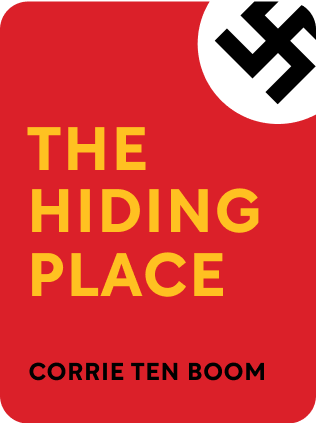

This article is an excerpt from the Shortform summary of "The Hiding Place" by Corrie ten Boom. Shortform has the world's best summaries of books you should be reading.
Like this article? Sign up for a free trial here .
Was Corrie ten Boom Christian? How did her faith influence her decisions?
Read about Corrie ten Boom, Christian identity, and why her religion was the reason she risked her life to save Jews in Haarlem.
Was Corrie ten Boom Christian?
Corrie grew up in the Netherlands city of Haarlem as part of a long-established, devoutly Christian family deeply committed to their faith. For Corrie ten Boom, Christian beliefs were a part of life. The ten Boom family were pious Christians, regular readers of the Bible who took the tenets of their faith seriously and sought to live their lives in a way that accorded with what they saw as the best principles of Christian theology—mercy, charity, forgiveness, kindness toward one’s neighbors, and most of all, the unconquerable power of Christ’s love.
The ten Boom family believed that it was their Christian duty to extend their bounty to those less fortunate. The bedrock of this faith was what would sustain Corrie ten Boom and her family through the horror of the Nazi occupation. This faith would be her salvation—as well as the salvation of all those whom she rescued from persecution and almost certain death, as their home would become both a spiritual and a literal hiding place.
Corrie ten Boom: Faith Results in Solemn Pledge
The decision to join the Resistance was a turning point for Corrie. She knew that working with the underground would mean lying, defying authority, stealing, forging, and possibly even violence, all of which was in direct violation of her bedrock Christian faith. Yet, for Corrie ten Boom, faith also told her she could not sit idly by while her neighbors were being persecuted. She prayed for the answer to the question—how should a Christian act when evil is in power? For Corrie ten Boom, Christian people should do the right thing.
Witnessing horrors happening to her neighbors and seeing so many in her community succumbing to the worst evil by collaborating with the Nazis, Corrie made a solemn pledge to God: she would help His people in any way she could.
Arrest and Holding Onto Beliefs
On the morning of February 28, 1944, officers burst into Corrie’s room, interrogating her exactly as Kik and Rolf had said they would. Corrie and Betsie were savagely beaten during the home interrogation, as the Gestapo attempted to force a confession.
After hours of brutality at the hands of the Gestapo, the ten Booms—Corrie, Betsie, and Casper, in addition to Willem, Nollie, and Peter—were loaded into a van and hauled off to the local Haarlem police station.
The ten Booms were placed in a small holding cell together while they awaited whatever fate lay in store for them. In their hour of need, the family turned to what had always sustained them in dark times—their Christian faith. As they waited in the dank cell in the Haarlem jail, Casper recited from memory Psalm 119:114, “Thou art my hiding place and my shield: I hope in thy word.” For Corrie ten Boom, Christian faith gave her strength.

———End of Preview———
Like what you just read? Read the rest of the world's best summary of Corrie ten Boom's "The Hiding Place" at Shortform .
Here's what you'll find in our full The Hiding Place summary :
- Why devout Christian Corrie ten Boom decided to stand up to the Nazi occupation
- How ten Boom and the Jewish neighbors she was hiding were caught
- How ten Boom survived the concentration camp and left with even stronger faith






